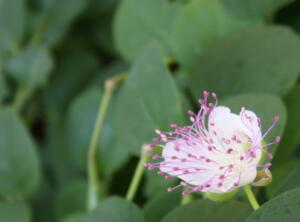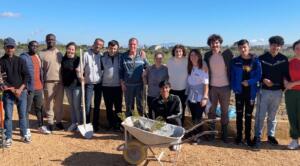Project duration: June 2024 – May 2025
SEF supports the association Ficus in their efforts to conserve agrobiodiversity in western Sicily. Over 60% of the traditional old varieties of fruit and horticultural crops are being abandoned, resulting in the loss of varieties that are well-adapted to the specific climate and soil of the region.
The project will involve local farmers in the Marsala and Trapani areas to identify ancient crop varieties at risk of extinction and promote sustainable agriculture techniques. The crops will be recovered and cultivated at the Ficus center, involving youths with disabilities and vulnerable immigrants under the guidance of certified operators in horticultural therapy.
The initiative supported by SEF, is a complementary project to the FOOD project (Ficus Beyond All Disabilities), in collaboration with ANFFAS(National Association of Families and People with Intellectual Disabilities and Neurodevelopmental Disorders), funded by the Sicilian Region.
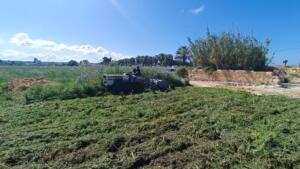
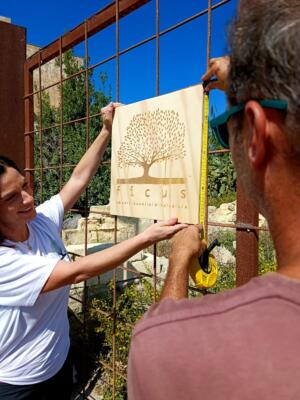
*SEPTEMBER 2024 UPDATE*
Everything is ready to kick off with the construction of educational gardens in Marsala, involving young people with disabilities and young immigrants!
As part of the project for the conservation of agrobiodiversity in Western Sicily, the Sicilian Purple Cauliflower has been selected and cultivated by local farmers as a traditional variety for the autumn gardens.
This vegetable, with high agronomic and commercial potential, is at risk of being abandoned, but the first seeds have already germinated, and the plants are growing strong and lush. An important first step to enhance ancient local varieties and promote social inclusion!
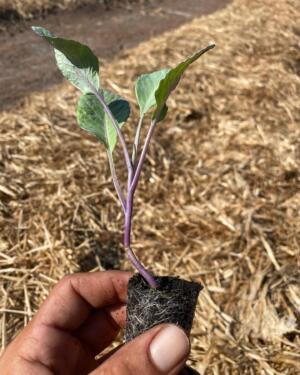
**OCTOBER 2024 UPDATE**
Ficus is collaborating with Cooperativa Sociale NoE from Partinico and Climavore x Jameel at RCA to preserve the agrobiodiversity of western Sicily! The farmers involved are beginning the autumn production of ancient Sicilian varieties of pumpkin and melon, which are at risk of being abandoned.
The selected varieties are known for their excellent organoleptic qualities and their resistance to diseases, pests, and drought, providing farmers with a genetic foundation for more climate-resilient gardens.
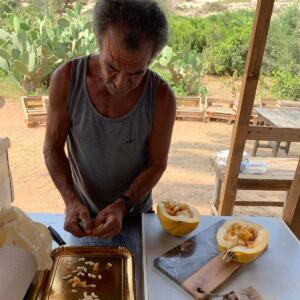
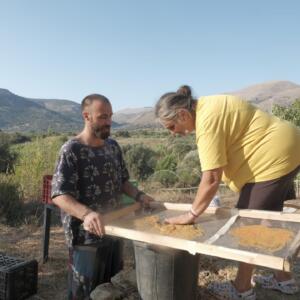
***JANUARY 2025 UPDATE***
As part of the project “Saving Agrobiodiversity in Western Sicily,” Ficus has begun preparing the land and constructing a garden bed dedicated to inclusive horticulture activities!
The structure is built with tuff bricks, a material typical of the Trapani tradition, and is inspired by a sculpture by architect Le Corbusier.
This space will host ancient Sicilian vegetable varieties, invaluable remnants of our biodiversity that are at risk of being forgotten. A small step to safeguard our agricultural and cultural heritage!
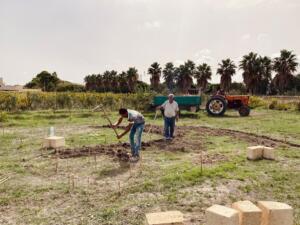
****FEBRUARY 2025 UPDATE****
Safeguarding Seeds, Cultivating the Future!
Ficus association together with Sementi Indipendenti and the Climavore project, organized a wonderful training day on seed self-production and conservation of horticultural plant varieties.
We shared a precious moment with local vegetable growers, deepening our understanding of the value of agrobiodiversity and local varieties, essential for a more climate-resilient agriculture. Building networks with various local initiatives committed to protecting Sicilian agrobiodiversity and expanding the community of growers involved in conservation projects is more crucial than ever.
Hosted by Cooperativa Sociale NOE in Partinico, a place now at risk of becoming a parking lot, this gathering reminds us of the importance of such initiatives in safeguarding Sicily and ensuring a greener, more sustainable future
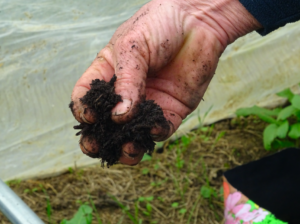
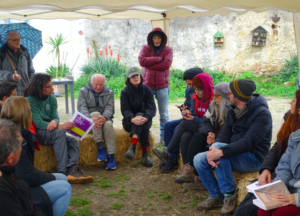
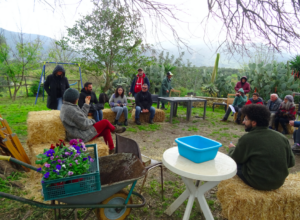
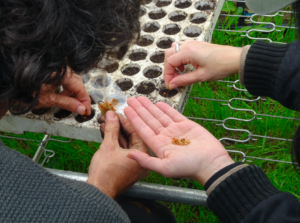
*****MAY 2025 UPDATE*****
The seedlings grown as part of the “Saving Agrobiodiversity in Western Sicily” project — from the pizzutello tomato of Trapani, the siccagno patataro, the siccagno of Salina, to the yardlong bean, the Palermo zucchini, an ancient variety of Luffa, and a traditional melon — are sprouting and will soon be planted in a hand-shaped garden bed, a symbol of care and connection to the land, at Ficus center.
Intensive farming and the globalization of markets promote only a few standardized varieties, leading to what’s known as genetic erosion: the gradual loss of agricultural diversity.
Saving local varieties means protecting agrobiodiversity, a vital resource for the future of agriculture and biodiversity in Sicily, by restoring abandoned farmland and preserving the traditional farming knowledge that is in danger of disappearing forever.
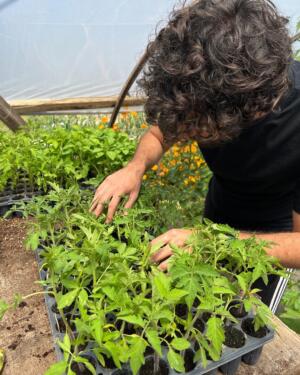
******JUNE 2025 UPDATE******
Sicily’s seeds of the past are growing into the future!
The project has come to an end, but its seeds are sprouting and growing! This journey has brought back to life precious local horticultural varieties, selected by dedicated crop custodians.
Some of the plants were grown by engaging disadvantaged minors and immigrants in hands-on educational events, creating a deep sense of ownership and inclusion. The project laid the groundwork for future growth, market testing and innovation.
